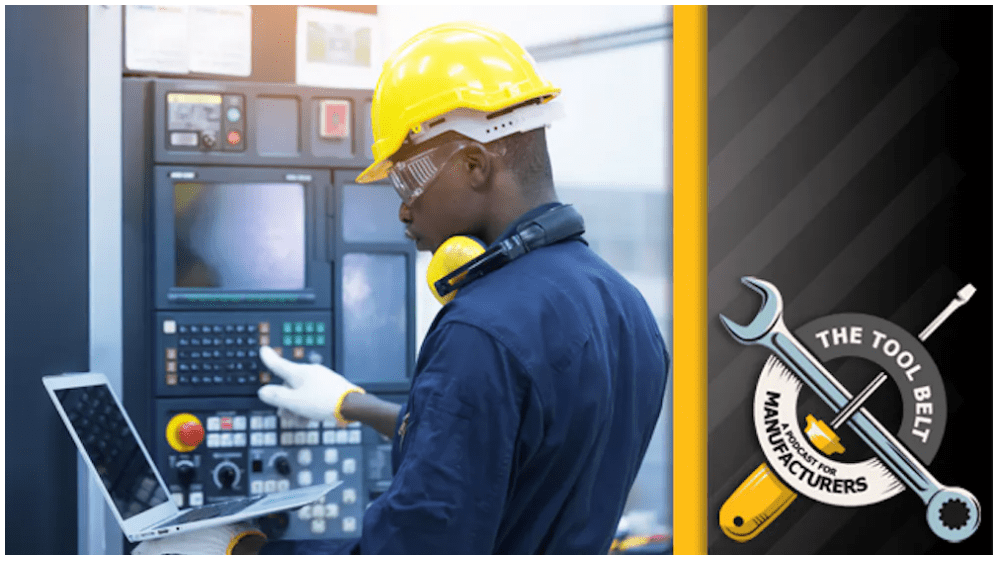
E Tech Group’s Business Director for Material Handling, Kurt Wakeman participated in a roundtable discussion on the future of automation industry with two other industry professionals for the Plant Services, The Tool Belt Podcast.
The podcast and article were originally published by Plant Services.
Click here to listen or read the transcript of the full episode.
In this episode of The Tool Belt, three system integrator professionals share their perspectives on where the automation industry is heading.
The Control System Integrators Association (CSIA) is a global trade association with over 500 member companies in 35 countries that seeks to advance the industry of control system integration. Control system integrators use their engineering, technical and business skills to help manufacturers and others automate their industrial equipment and systems. For this year’s System Integrator Roundtable episode, Plant Services editor in chief Thomas Wilk spoke with three veteran system integrator professionals about how the industry is changing and which new technologies are poised to make a big impact. Kurt Wakeman is the business director for Material Handling group at E Tech Group. Bob Pusateri is director of business development at Electronic Drives and Controls. Sam Hoff is President and CEO of Patti Engineering.
PS: Kurt, let me pose that question to you. Do you see a big change in the kind of work that your team will be doing in 2023 or beyond, versus the last couple of years? Or do you see the same kind of workload increasing?
KW: Yeah, I do think 2023 looks a little different based on some of the economic challenges we’ve been facing. Customers tend to be investing a little bit more in existing equipment as opposed to buying new systems. They’re a little bit tighter with their money and they’re investments, so we’ve seen a big uptick in demand for recontrols, mods and upgrades, IT-OT assessments, things of that nature.
We’re also seeing a transition away from PC-based controls to PLC-based controls. A lot of the big OEMs offer the proprietary intellectual property software that comes with lockdown – there’s no available source code, and we’re seeing customers demanding more open source, agnostic software that can drive consistent visualization, maintainability, regardless of what mechanical equipment is being provided. So recontrols has been a very popular offering that we’ve pursued in 2023.
Kind of in the same line of that too is that customers are demanding more extensive vendor qualifications including certifications. We put a big investment aside to get our team trained in Rockwell, Siemens, Ignition, AVEVA, to name a few, just to make sure that you know we’re going to be competitive as the need is there. That’s what I’m seeing.
PS: Kurt, let me ask you about technologies that are changing the game in your area of expertise here.
KW: Right. So I was actually in Chicago back in March and I attended the trade show ProMat – ProMat’s a big material handling trade show that happens every other year in Chicago – and what I saw was a huge effort to eliminate repetitive tasks and automate manual processes. This could be done through solutions like ASRS (automated storage & retrieval), autonomous robots, automated picking.
There was actually one display that really stood out to me and it was by Exotec and they had a system called a Skypod system. The system is modular, and it has automated storage & retrieval via autonomous robot and the autonomous robot feeds into an automated robot picker. You look at the system and there’s literally not one human interacting with the system and orders are being fulfilled. You think about what goes into making this happen, and AI is a big part of it being able to leverage vision systems, historical data, different algorithms, and to optimize moves and navigate obstacles just to be able to operate autonomously. I think that is what is going to change the game in my industry, and probably other industries within automation as well, and you’re going to see a lot less people in these buildings.
PS: Let me ask a wrap-up question on sustainability. It’s kind of a buzzword, but also I do think we have a sustainable moment that’s upon us. I raise this question because at a couple of trade shows, I’ve seen an increasing number of software providers explaining that they’re getting requests from their clients to build out modules record the carbon footprint of operations, and that’s going to take a lot of integration work between systems that talk to each other to actually get that data. So I was curious to know, what are you seeing in this area? Are you getting requests for work that way? Are you observing this sustainability is changing the way integrators approach the business?
KW: I took a little different spin on this question. You know, interestingly, E Tech is part of a big project with the customer that wanted an automated indoor farming solution to grow products such as lettuce, basil, microgreens. They distribute these locally to our grocery store in this area and this customer advertises processes that use 100% renewable energy, 95% less water, and can grow 300 times more food per square foot than traditional farming. So, I think about what are our customers doing? Maybe customers that historically were not in automation, we are now enabling them to get into automation and then also reaping the benefits of the sustainable culture.
PS: Kurt, you’re taking me back to a combination I had even in 2019 out in California where someone was doing a digital wine, and making sure that they understood the exact variables – pressure, temperature – that went into the best batches of wine. They were loading the data into the Pi system and trying to reproduce those conditions, so I hear you when you say these technologies would be applied in ways that are all new.